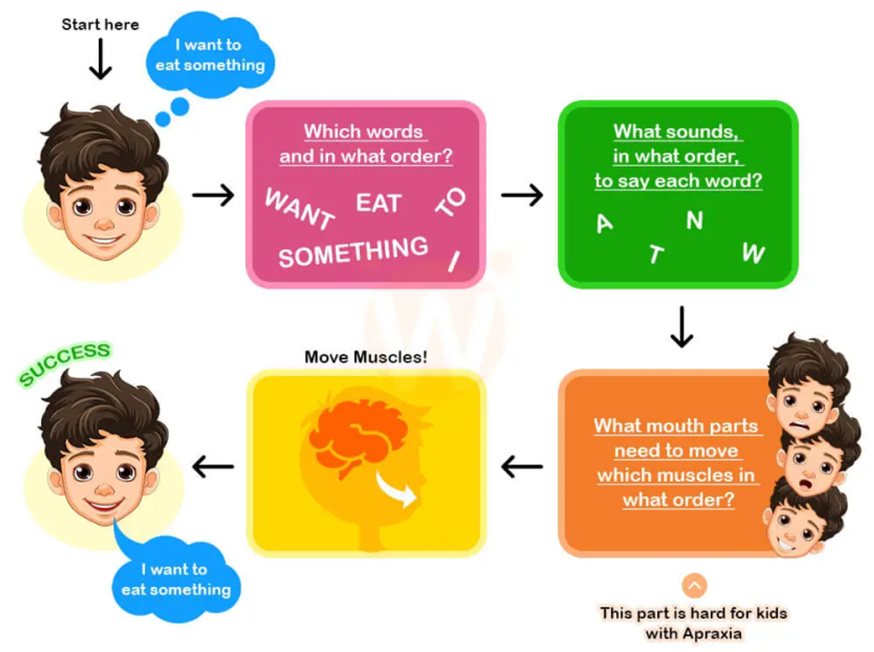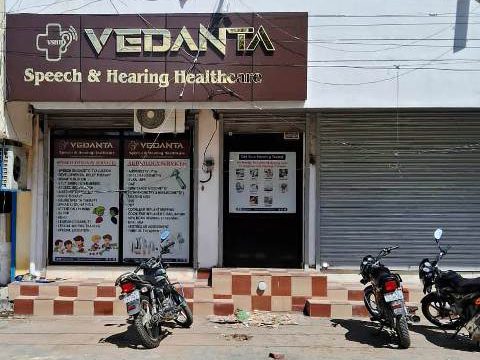Accurate tests to assess hearing and recommend care.
Helping children and adults speak clearly and confidently.
Digital hearing aids fitted for your lifestyle and hearing loss.
From evaluation to AVT, we’re with you at every step.
Advanced hearing implant solutions for better clarity.
Consult online from the comfort of your home.
Accurate tests to assess hearing and recommend care.
Helping children and adults speak clearly and confidently.
Digital hearing aids fitted for your lifestyle and hearing loss.
From evaluation to AVT, we’re with you at every step.
Advanced hearing implant solutions for better clarity.
Consult online from the comfort of your home.


Childhood Speech And Language Disorders Can Delay Communication Development, Making Early Diagnosis And Intervention Essential For Building Strong Language, Learning And Social Skills.
Childhood speech and language disorders are conditions that affect a child’s ability to speak clearly, understand others, express thoughts, or use language appropriately. These disorders can interfere with communication and learning, and they often become noticeable as a child begins to talk or starts school. Speech disorders involve difficulties producing sounds correctly or fluently (e.g., stuttering, articulation issues), while language disorders involve problems understanding or using words in context. These conditions can be caused by developmental delays, neurological conditions, genetic syndromes, hearing loss, or structural issues like cleft lip and palate. Early diagnosis and speech-language therapy play a vital role in improving communication skills and supporting overall development.
Childhood speech and language disorders encompass a wide range of conditions that affect a child’s ability to communicate effectively. Voice disorders involve problems with pitch, volume, or quality of the voice. Articulation disorders affect the ability to form clear speech sounds, while phonological disorders involve patterns of sound errors. Language disorders may impact a child’s ability to understand (receptive) or use (expressive) language. Stuttering or stammering involves disruptions in the flow of speech. Structural issues like cleft lip and palate can also impair speech. Neurological and developmental conditions such as Autism Spectrum Disorder, Down’s Syndrome, Cerebral Palsy, and Apraxia of speech commonly involve speech and language difficulties. Children with ADHD or learning disabilities may struggle with communication due to attention or processing challenges. Early identification and speech-language therapy are crucial in addressing these and other related disorders to support effective communication development.

Voice Disorders – Problems with pitch, loudness, or quality of the voice, often sounding hoarse, nasal, or breathy.
Articulation Disorder – Difficulty forming speech sounds correctly (e.g., saying “wabbit” instead of “rabbit”).
Language Disorders – Trouble understanding or using spoken or written language (receptive or expressive).
Phonological Disorder – Patterns of sound errors, such as substituting all back sounds (k, g) with front sounds (t, d).
Stuttering/Stammering – Interruptions in the flow of speech, including repetitions, prolongations, or blocks.
Cleft Lip & Palate – A birth defect affecting the upper lip and roof of the mouth that can impact speech and feeding.
Autism Spectrum Disorder (ASD) – A developmental disorder affecting communication, social interaction, and behavior.
Down’s Syndrome – A genetic condition often associated with delayed speech and language development.
Cerebral Palsy – A neurological disorder affecting movement and coordination, often impacting speech muscles.
Apraxia of Speech – A motor speech disorder where the brain struggles to coordinate mouth movements for speech.
Attention-Deficit / Hyperactivity Disorder (ADHD ) – May cause difficulties in following conversations, staying on topic, or processing language.
Learning Disability – Impacts understanding, speaking, reading, or writing, often affecting language development.
Others – Includes hearing loss, selective mutism, developmental delays, and emotional or behavioral disorders that can affect communication.
Each condition may vary in severity and impact, requiring individual assessment and therapy.
Vedanta Speech and Hearing Healthcare is committed to providing comprehensive care for individuals experiencing Childhood speech and language disorders. These conditions can significantly affect communication, independence, emotional well-being, and overall quality of life. At Vedanta, we understand that every individual’s journey is different, which is why our approach is personalized, evidence-based, and compassionate.
At Vedanta, we create custom therapy plans tailored to each patient’s age, condition, and personal goals. Our aim is to help you communicate effectively and confidently in every situation. Speech-language pathologists (speech therapists) treat disorders related to:
Speech clarity Language development Stammering or stuttering Voice disorders Delayed speech in children Neurological speech difficulties (e.g., after stroke)
We provide specialized care for:
Infants and toddlers with delayed speech milestones School-aged children with learning or speech disorders Adults with speech loss due to stroke, trauma, or neurological issues Senior citizens experiencing age-related hearing loss Anyone seeking guidance, therapy, or hearing device solutions
Don’t Wonder If You Or Your Loved Ones Have Hearing Loss Or Speech Disorder; Find Out For Sure With Advanced Tests. Vedanta Speech And Hearing Healthcare Is Ready To Help You Or Your Loved One To Live Better. It All Starts With An Honest Conversation About Your Hearing Loss or Speech Disorder And a Test.

Vedanta Speech and Hearing Healthcare
# Number 6/1, MC Office Road, Punjabi Mohalla, Ambala Cantt # SCO 109, 1st Floor, Sector 40-C, Chandigarh Other Healthcare Centers also available at Ambala City, Chandigarh (Tricity), Jammu, Roorkee
91-7060360346 | +91-7347347718, Monday – Saturday | 10:00 am to 7:00 pm